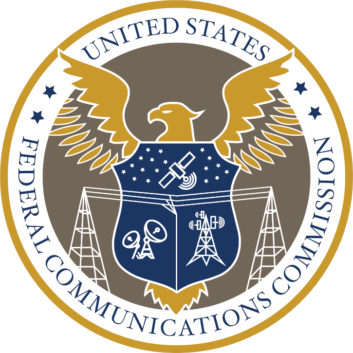 The Federal Communications Commission recently issued two Notice of Apparent Liability for Forfeitures to two secondary-class stations for the same violations — though the commission, as it has many times in recent weeks, reduced the penalty significantly because these stations provide a secondary service.
The Federal Communications Commission recently issued two Notice of Apparent Liability for Forfeitures to two secondary-class stations for the same violations — though the commission, as it has many times in recent weeks, reduced the penalty significantly because these stations provide a secondary service.
In the case of station WRIA(LP), a low-power FM station in Jacksonville, Fla., the Media Bureau found that the licensee — SCLC Jacksonville Florida — willfully violated FCC Rules by failing to file a license renewal application on time and violated the Communications Act by operating the station without authorization.
The details are similar in the case of Katahdin Communications, a permittee looking for a license for FM translator station W273DJ in Millinocket, Maine. Katahdin, too, was notified that it had apparently failed to file a license application on time and also repeatedly violated the Communications Act by operating the translator after its permit had expired.
[Read: Expired Licenses Lead to $7,000 Forfeiture for FM Translator]
In both cases, the Media Bureau concluded that the applicant would be liable for a monetary forfeiture in the amount of $3,500 — a figure that’s a good deal smaller than the base amount of $3,000 for failing to file the required form and another $10,000 for operating without authorization.
In the case of SCLC, its license renewal application was expected to be filed by Oct. 1, 2019, which would have been four months prior to the station’s license expiration date. The Media Bureau notified SCLC that the station’s license would expire if no renewal application was filed by Feb. 1, 2020. When the licensee did file the application on Feb. 25, 2020, it gave no explanation as to the untimely filing — though it did send a letter asking the commission to accept the late-filed application without a penalty. But the formal avenues were not followed, namely that SCLC seek a waiver of the renewal filing deadline. The licensee also failed to request special temporary authority to operate the station after the license expired.
The bureau tentatively found that a $7,000 forfeiture would be appropriate: a $3,000 forfeiture for failing to file on time and a reduced forfeiture of $4,000 for operating without authorization. The bureau adjusted that figure again to $3,500 to include a base amount of $1,500 for filing late and $2,000 for unauthorized operation because as an LPFM the station is providing a secondary service.
The language and methodology used to calculate the forfeiture for Katahdin was similar. The permittee failed to file a covering license application and continued to operate the translator when its license expired on Jan. 8, 2021. Katahdin also failed to request special temporary authority and engaged in unauthorized operation for nearly three months before filing the appropriate paperwork.
The base forfeiture amounts are the same for Katahdin as they were for SCLC: $3,000 for failing to file a required form and another $10,000 for operating without authorization. The bureau also dropped Katahdin’s forfeiture to $7,000 and then again to $3,500, citing the translator’s secondary service nature.
Both SCLC and Katahdin have 30 days to pay the full amount or submit a written statement asking for future reduction or cancellation.







